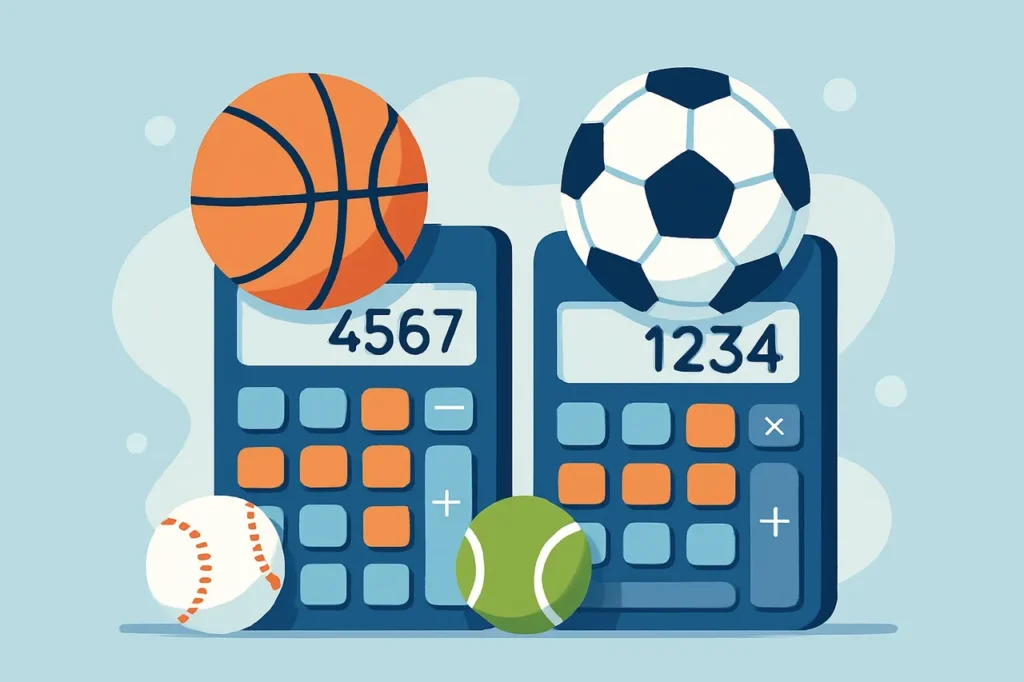Fuel Cost Calculator
Are you planning a car trip and want to know exactly how much you’ll spend on fuel? Our Fuel Cost Calculator lets you easily calculate the total cost of your trip, taking into account distance, average fuel consumption, fuel price, and the number of passengers. This tool is indispensable for individual drivers, transport companies, and people planning group journeys.
With its intuitive interface, the calculator automatically processes all parameters and displays the result as the total trip cost and required amount of fuel.
How does the Fuel Cost Calculator work
The Fuel Cost Calculator uses basic mathematical operations to determine the amount of fuel needed and the total trip cost. All you need to do is enter a few basic details, and the calculator does the rest.
After entering the data, the calculator automatically calculates:
- Required fuel – in gallons, based on distance and vehicle fuel efficiency.
- Total trip cost – considering the fuel price and additional load from passengers.
This way, you can accurately plan your travel expenses and optimize the route in terms of costs.
Main functions of the calculator
Our calculator offers a range of useful features that make it easier to plan car travel expenses.
The key functions include:
- Trip distance
Enter the distance in miles, and the calculator computes the required fuel. - Vehicle fuel efficiency
Enter the average fuel consumption in miles per gallon (mpg), and the calculator estimates the required fuel and trip cost. - Fuel price
Enter the current fuel price in USD per gallon, and the calculator will compute the total travel cost. - Passenger load
The calculator considers the extra load from passengers. Every additional 100 lbs increases consumption by about 0.14 gallons per 100 miles, assuming a vehicle curb weight of 3300 lbs (1500 kg). - Net vs. gross cost
The calculation report shows both the cost with only the vehicle’s own weight and the cost including passenger load.
How to use the Fuel Cost Calculator
For the calculator to work properly, you need to enter a few basic parameters:
- Distance in miles – the planned route length.
- Average fuel consumption – in mpg, to calculate required fuel.
- Fuel price – current price in USD per gallon.
- Number of passengers and average weight per person – to include additional load in the calculation.
With this data, the calculator automatically determines the required fuel and total trip cost.
Example usage of the calculator
Want to see how the Fuel Cost Calculator works in practice? Here are sample scenarios:
Trip of 310 miles
- Distance: 310 miles
- Fuel efficiency: 26 mpg
- Fuel price: $3.30 per gallon
The calculator determines:
- Required fuel: about 11.9 gallons
- Total trip cost: about $39.30
Impact of additional passengers
If the trip includes more people, the calculator adds their weight and recalculates the cost with increased fuel consumption.
Calculation formula
The basic fuel cost calculation follows this simple formula:
Required fuel = (Distance ÷ Fuel efficiency)
Total cost = Required fuel × Fuel price
Example:
A 500-mile trip with a car consuming 26 mpg at $3.30 per gallon would cost:
- Required fuel: 500 ÷ 26 ≈ 19.2 gallons
- Total cost: 19.2 × $3.30 = $63.40
Why use the Fuel Cost Calculator?
Planning fuel expenses can be difficult, especially for longer trips or with varying passenger numbers. Our calculator helps quickly and precisely calculate all costs, making it easier to:
- Control fuel costs – it shows the total cost and cost per person.
- Plan vehicle efficiency – accounting for passenger load helps avoid surprises.
- Make quick calculations – just enter the data once, and the calculator does the rest automatically.
Based on 1 source
- 1. Gillespie, T. D. (1992). Fundamentals of Vehicle Dynamics. Society of Automotive Engineers.
Fuel Cost Calculator - FAQ
Fuel cost calculators provide estimates typically accurate within 5-15% of actual costs. Accuracy depends on using current gas prices, accurate vehicle fuel consumption data, and accounting for real driving conditions. For best results, use your vehicle's actual measured consumption rather than EPA ratings.
Driving speed has the biggest impact on fuel efficiency. Driving at 80 mph uses approximately 25% more fuel than driving at 65 mph. Other major factors include vehicle load, terrain, weather conditions, and traffic patterns. Maintaining steady speeds and using cruise control can improve efficiency by 10-15%.
For a typical 3,000-mile cross-country trip, budget $300-600 depending on your vehicle's fuel efficiency and current gas prices. Factor in an additional 15-20% buffer for detours, traffic delays, and price variations. Vehicles getting 25 MPG will cost significantly less than those getting 15 MPG.
Driving becomes more economical than flying when traveling with multiple people or for distances under 400-500 miles. Consider total costs including fuel, hotels, meals, and vehicle wear. For solo travelers on trips over 800 miles, flying often costs less when including overnight accommodations.
Proper maintenance can improve fuel efficiency by 10-25%. Key improvements include: maintaining proper tire pressure, using the correct oil grade, replacing air filters, removing excess weight, and driving at steady speeds. Simple driving habit changes like gradual acceleration and maintaining 55-65 mph can significantly reduce consumption.
GasBuddy is the most popular choice with real-time price updates from millions of users. Waze integrates gas prices with navigation, while GetUpside offers cashback rewards. Most apps update prices every few hours and can save you $0.10-0.30 per gallon by finding cheaper stations.
Fuel cost per mile = (Fuel price per gallon) ÷ (Vehicle MPG). For metric users: Cost per kilometer = (Price per liter × Vehicle consumption per 100km) ÷ 100. Track your actual consumption over several fill-ups for the most accurate calculations rather than relying on manufacturer estimates.





